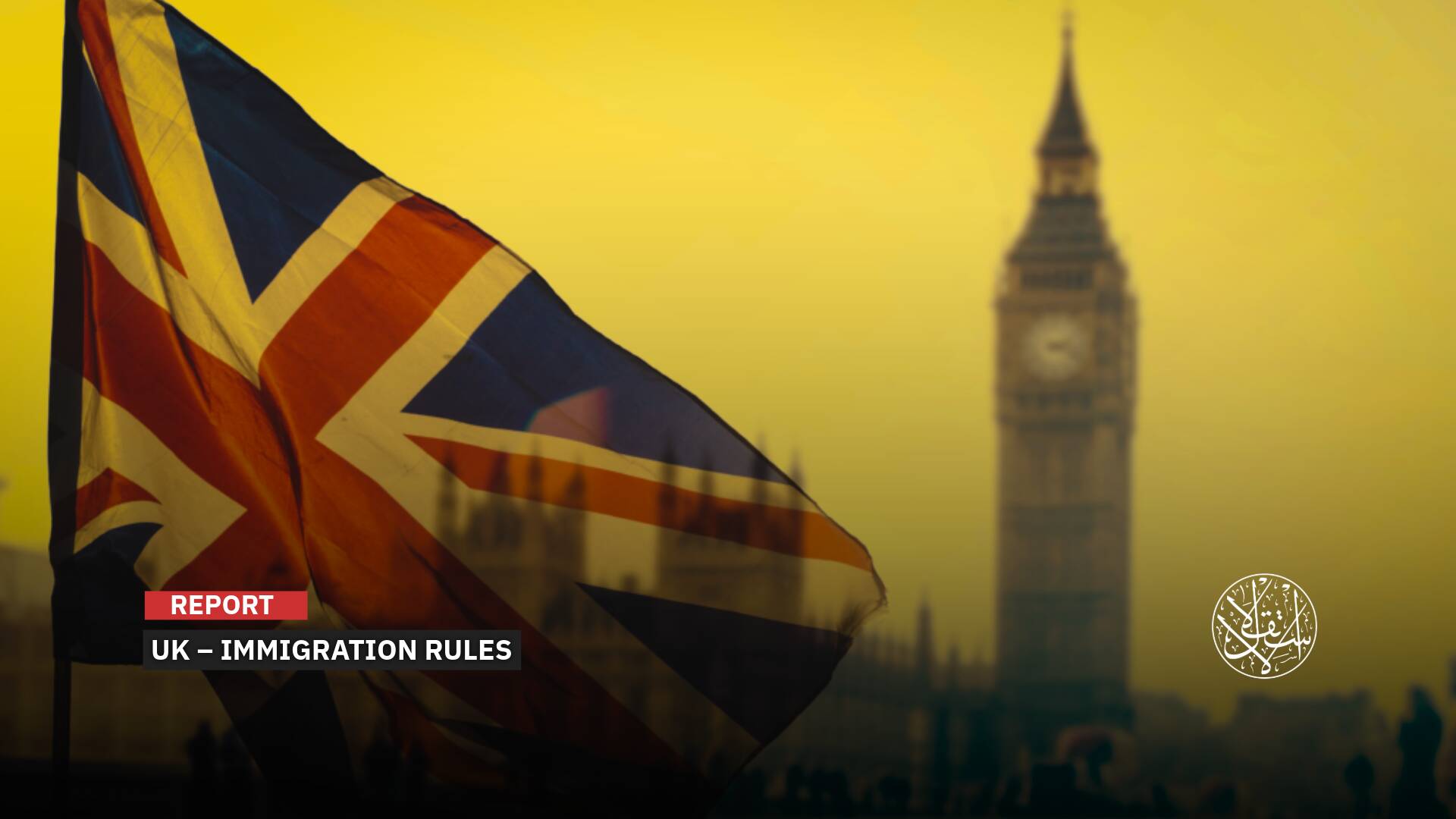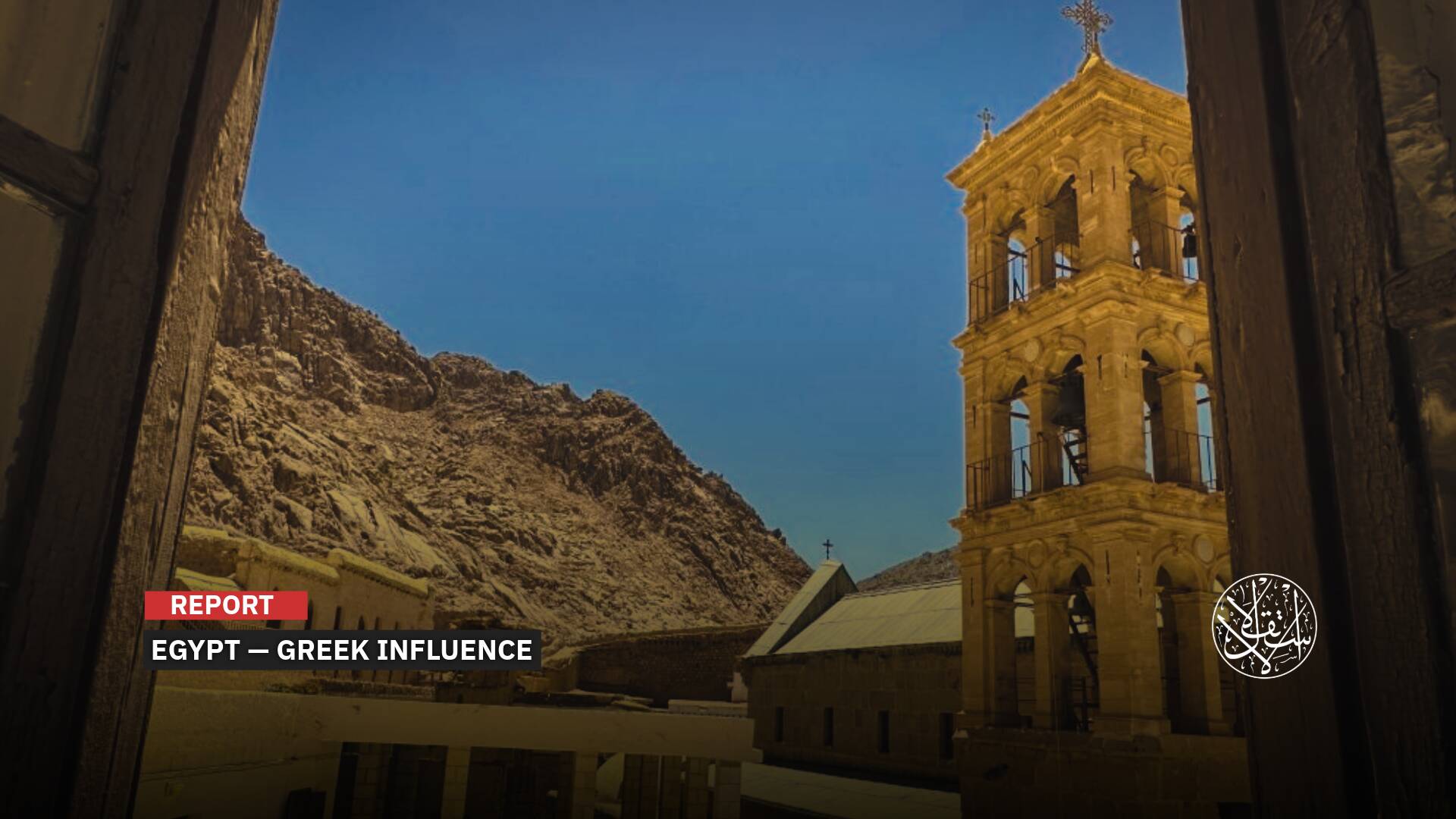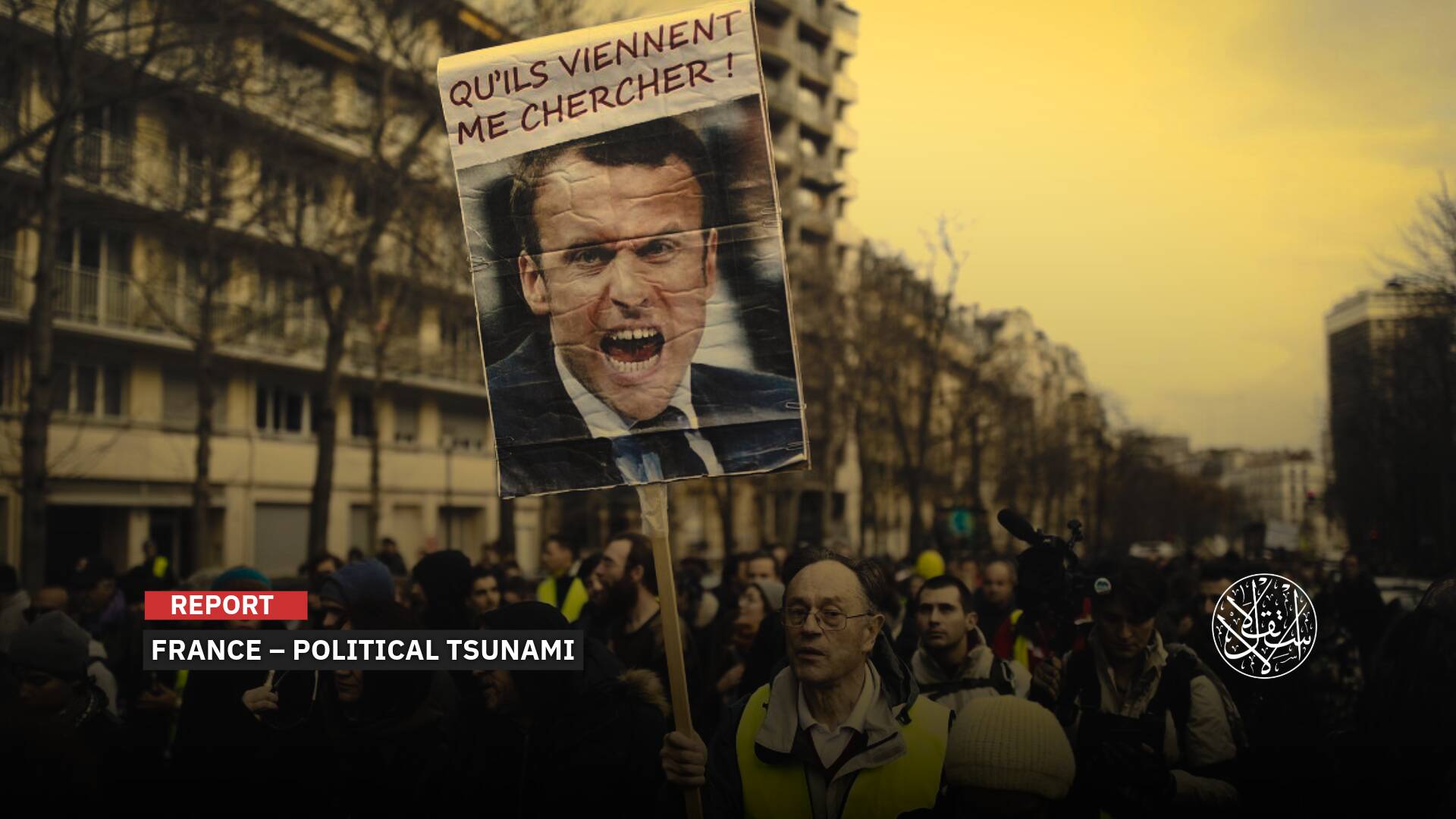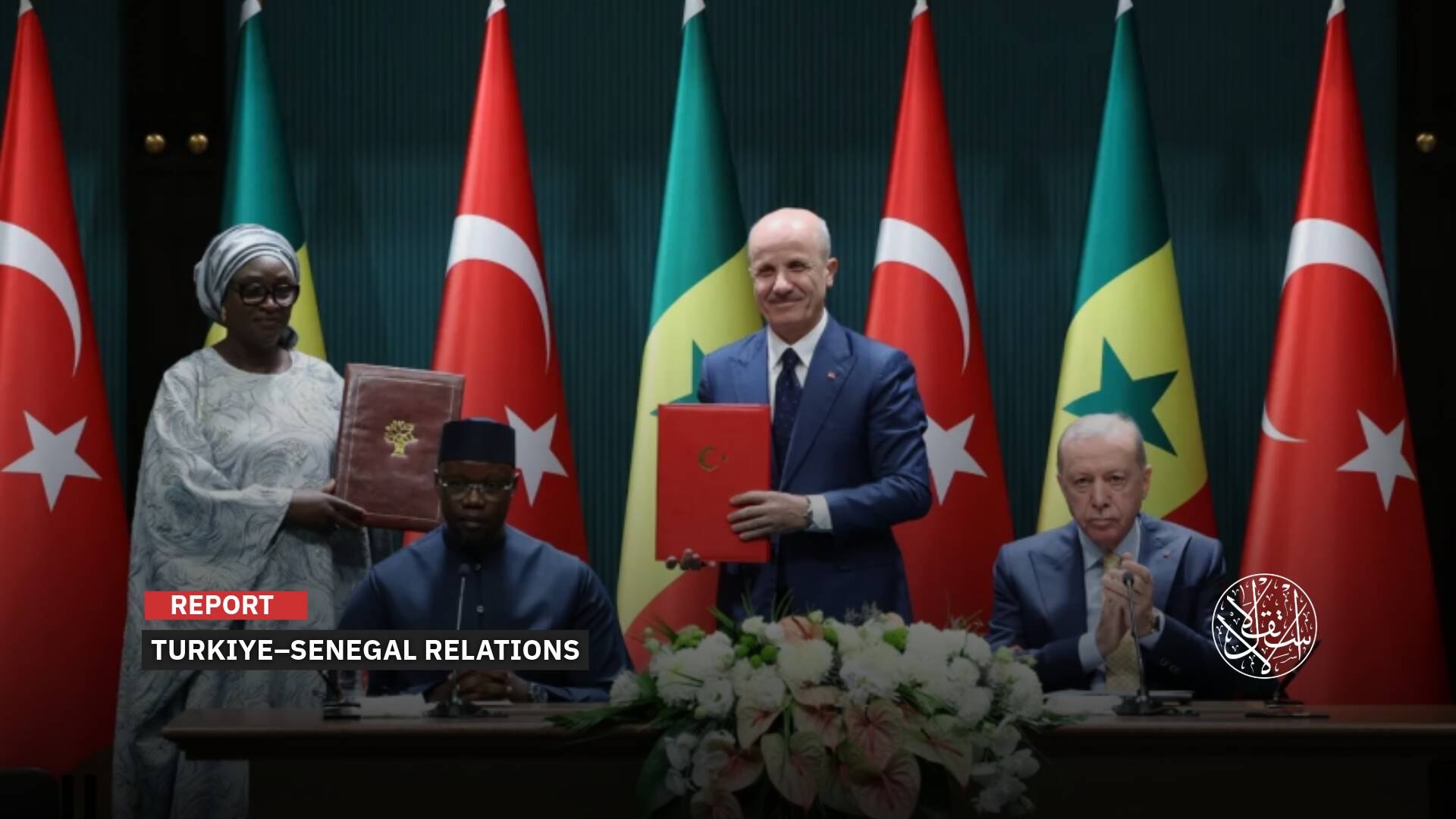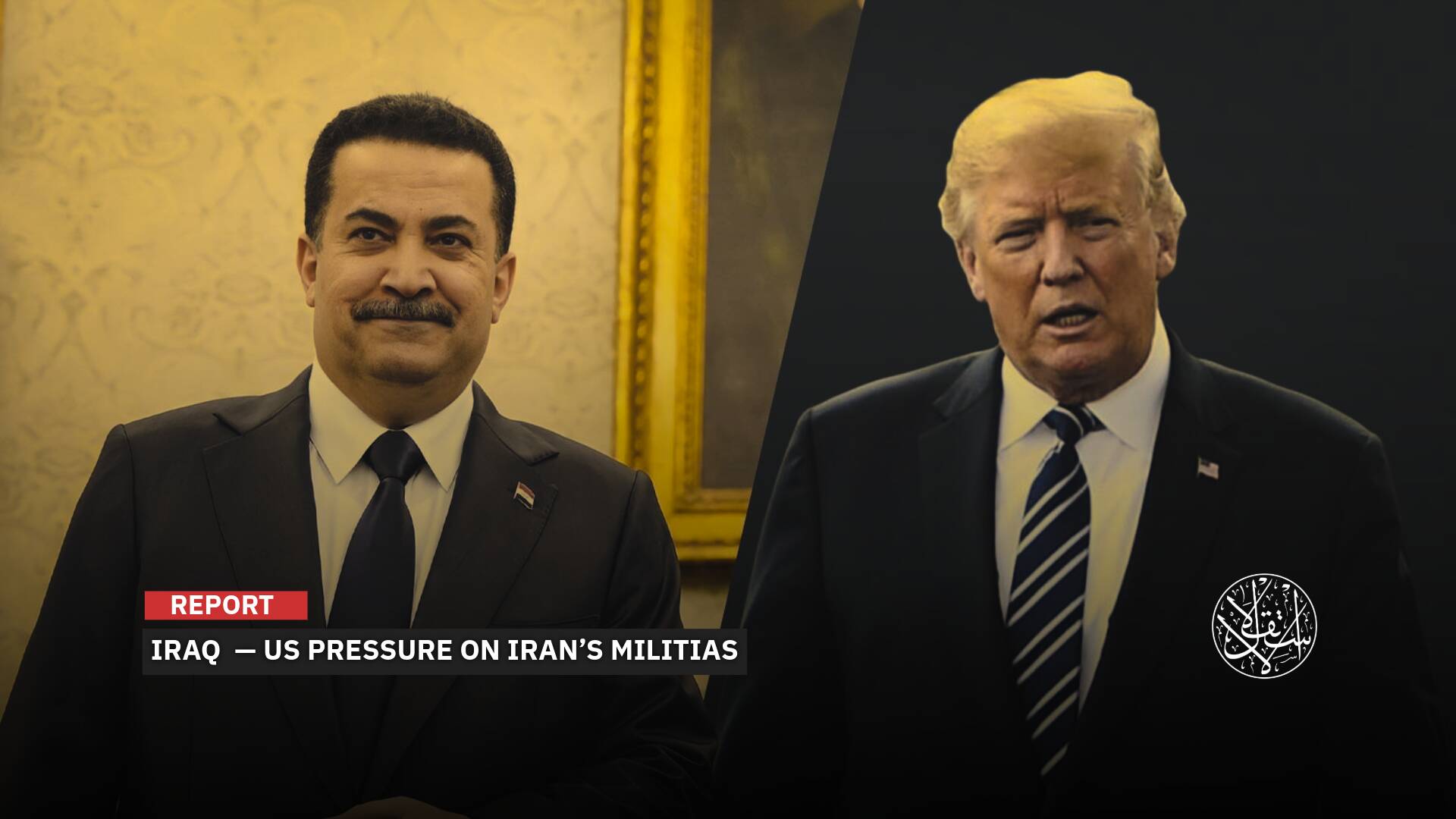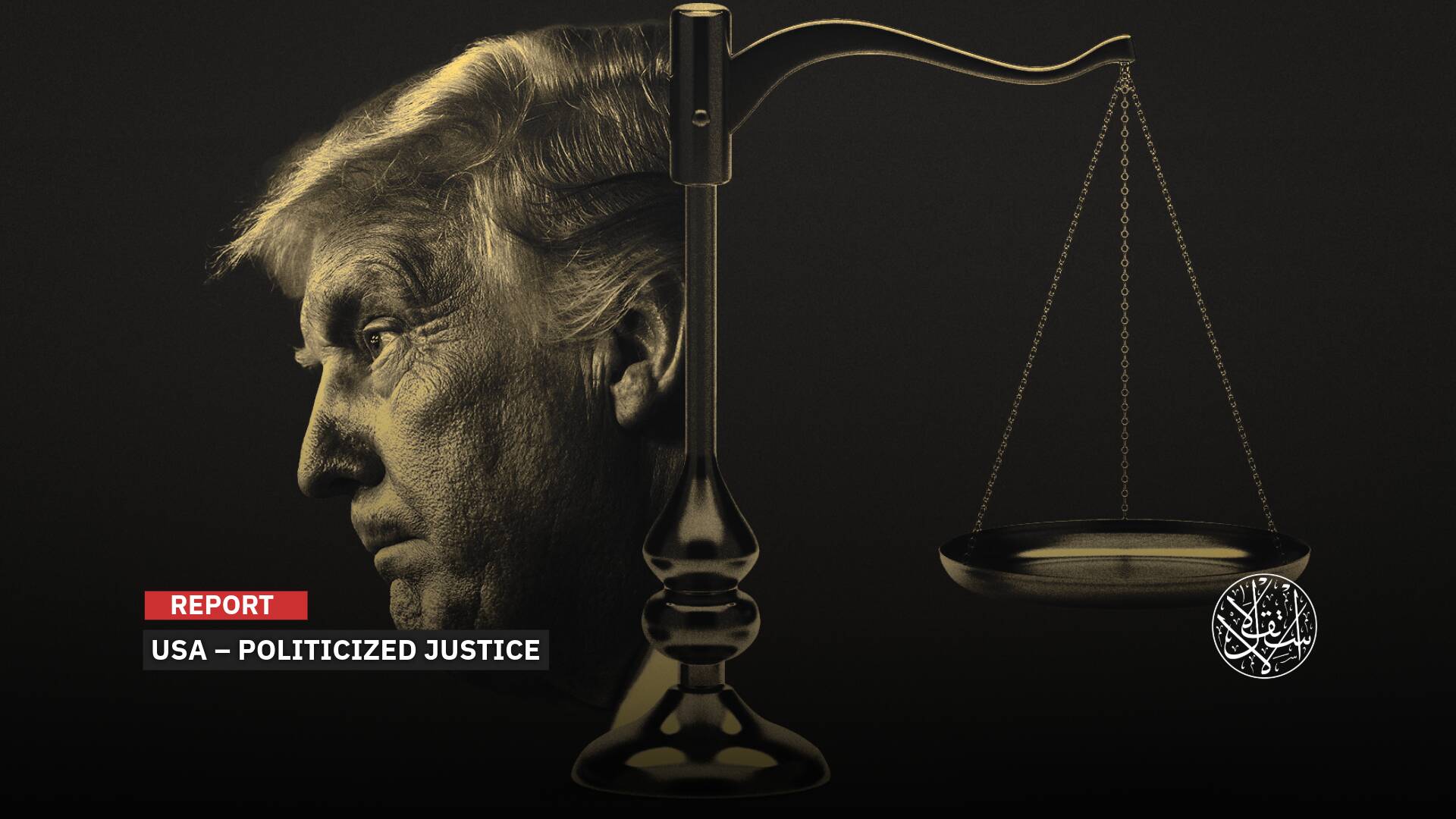Chinese President Dismisses Senior Military Leaders: Combating Corruption or Consolidating Authority?
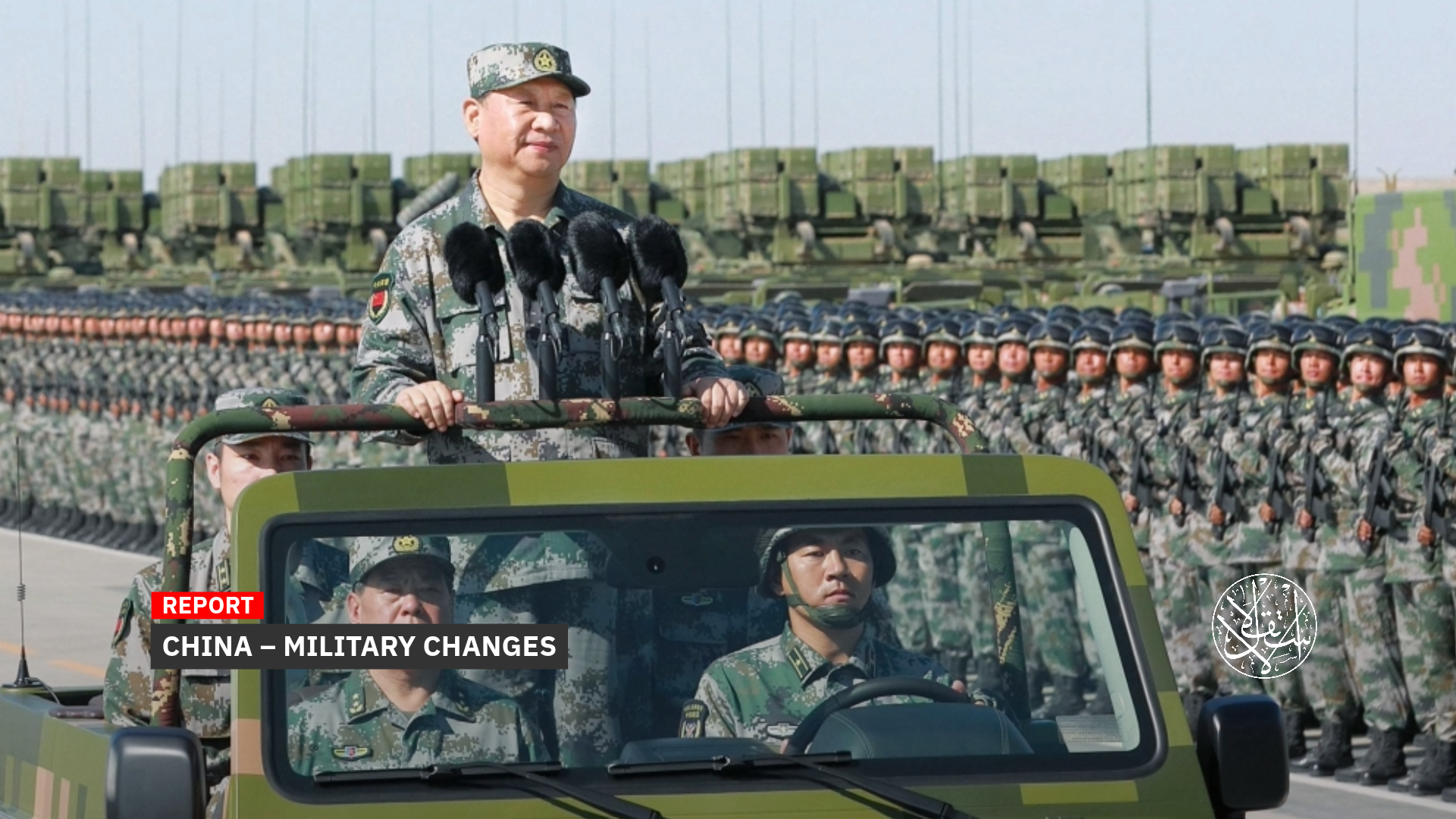
After the case of the dismissal of former Chinese Foreign Minister Qin Gang, which not only resounded within China but all over the world, a new crisis has emerged within the force responsible for Beijing’s missile and nuclear arsenal, the first instance where the leaders of this force were excluded from their posts during decades.
The Financial Times considered that these changes made by Chinese President Xi Jinping in the ranks of military leaders are the largest of their kind since 2012, when the attempt was then to reaffirm the party’s control over the armed forces after it seemed to be backing away in the aftermath of Xi’s assumption of power.
On its part, the Wall Street Journal confirmed that the recent changes in military positions come amid talk of new measures to combat corruption in the armed forces, and the efforts of the ruling party and its leader Xi to guarantee the absolute loyalty of the People’s Liberation Army (PLA).
Bloomberg Agency indicated that the recent changes come after Xi, who runs the largest armed forces in the world in terms of the number of members, launched 3 public calls to strengthen the military administration, in less than two weeks.
In mid-July, the Chinese leader ordered the party to maintain absolute command of the PLA. Afterward, Xi instructed the army to press ahead with anti-graft efforts while visiting an Air Force facility.
Cracked Control
A day before the 96th anniversary of the founding of the Chinese military, Chinese President Xi Jinping dismissed the commander of the PLA Rocket Force Li Yuchao and his deputies Zhang Zhenzhong and Liu Guangbin.
The Rocket Force oversees China’s conventional and nuclear missiles, including ballistic missiles that can reach the U.S. mainland.
These weapons could be part of a broad and very vital program for China and its long-term goal to extend its sovereignty over Taiwan and challenge the U.S. in the region.
On July 31, 2023, Xi appointed Wang Houbin, former deputy commander of the Chinese Navy, as the new commander of the Chinese Army’s Rocket Force, and Xu Xisheng, as the new political commissar of the Rocket Force, with their promotion to the rank of general, which is the highest rank for active-duty officers in the country, according to the Chinese news agency Xinhua.
The Chinese newspaper South China Morning Post described the decision to transfer Wang Houbin from the Naval Forces to the Rocket Force as unprecedented.
The appointment of new commanders from other forces of the army marks a sharp departure from tradition.
The incidents could hint at potential cracks in Xi’s hold on power in his third term, presaging further uncertainty within the upper echelons of the Chinese system, analysts said.
“This has brought to the fore the fact that Xi has problems within both the diplomatic and military systems,” said Ying-Yu Lin, assistant professor of international affairs at Tamkang University in New Taipei City.
“This shows that Xi may be encountering more difficulties when it comes to control internally,” he added.
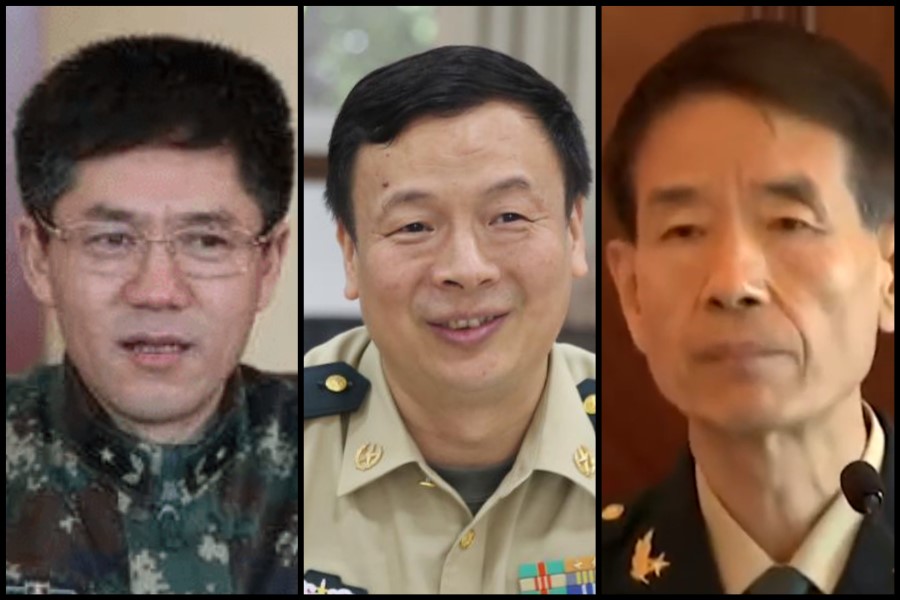
“The decision to remove the former leaders of the force likely would not affect the trajectory of China’s nuclear and missile buildup,” said Lyle Morris, a senior fellow at the Asia Society Policy Institute’s Center for China Analysis.
“The ouster of the top two leaders of the force that controls the country’s nuclear arsenal and their replacement with officers from different services is startling,” said Joel Wuthnow, a senior research fellow at National Defense University.
“The Rocket Force is the most sensitive branch of the PLA, and for someone with zero experience in the service to replace the commander is virtually unprecedented,” he said.
The move could have implications for any potential conflict over Taiwan, the self-governed island democracy that Beijing claims it will take by force if necessary to compel unification.
If war should break out, the rocket force’s long-range conventional missiles could target U.S. bases and aircraft carriers in the western Pacific, while its short-range ballistic missiles could target Taiwan.
“If you don’t have confidence in the leaders of a force that is so central to a Taiwan campaign, then that would weigh heavily on a decision on whether to get into a war in the first place,” Wuthnow said.
The Rocket Force is currently one of the most strategically important units of the Chinese army, as it assumes responsibility for the rapidly expanding nuclear deterrent in China. In addition, it controls missile systems crucial in any possible attack on Taiwan, per The Financial Times.
Last year, the U.S. Department of Defense said in a report that Beijing has accelerated its nuclear weapons development in recent years and is on track to have about 1,500 operational nuclear warheads by 2035, from about 400 now.
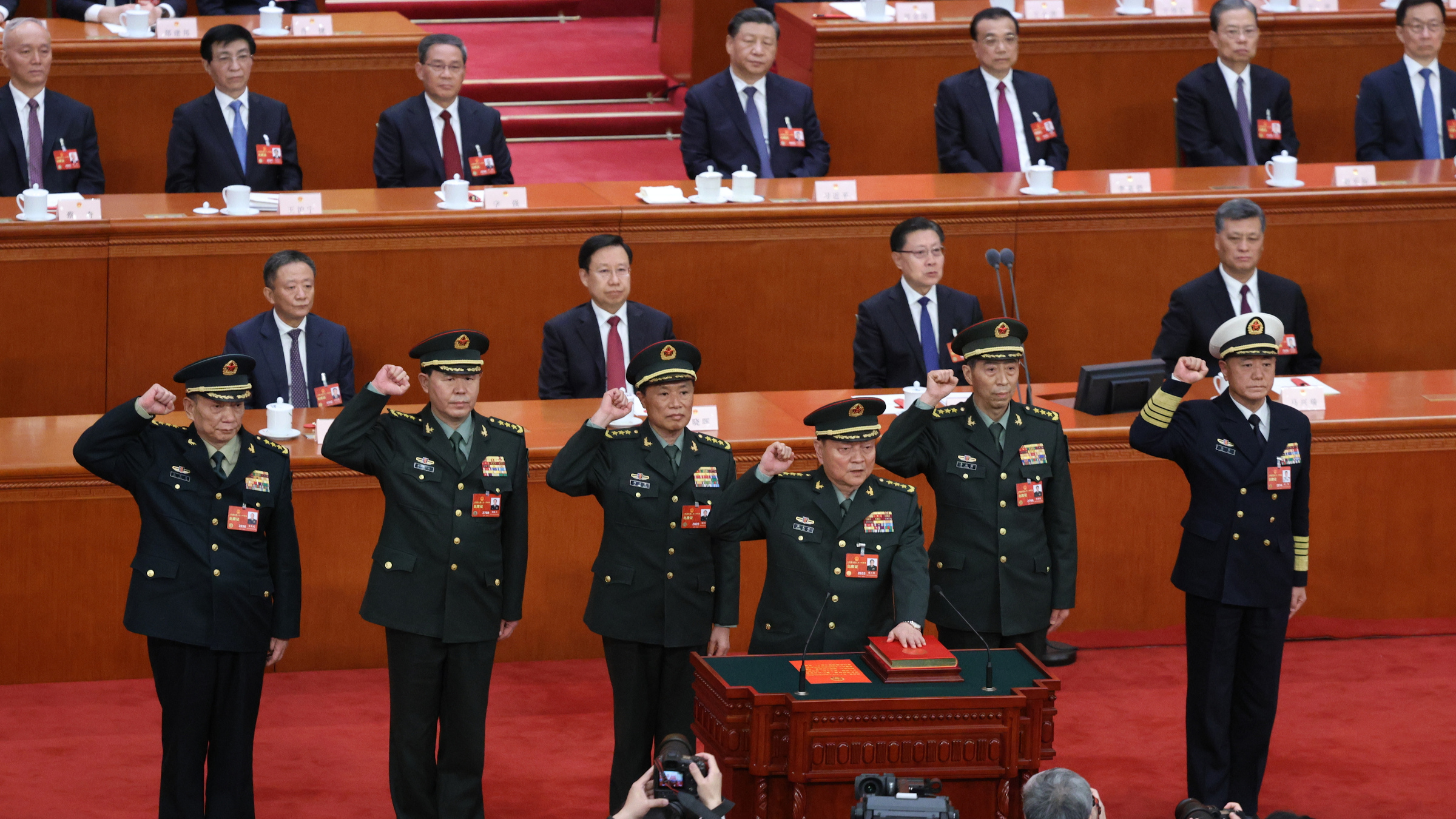
Corruption Crisis
Since coming to power in 2012, Xi has overseen a crackdown on corruption in all sectors of the Chinese military, causing a purge of the top brass, like Fang Fenghui, former chief of staff of the PLA, who accompanied Xi on his first meeting with former U.S. President Donald Trump in 2017.
After the last crackdown on corruption five years ago, Fenghui was imprisoned for life, and Zhang Yang, one of China’s most senior generals, committed suicide before he could be formally convicted. Prior to their conviction and detention, each of these men held senior positions for many years.
Last month, the South China Morning Post revealed that “the anti-corruption unit of the Central Military Commission was investigating the former commander of the missile force and his current and former deputies under investigation for leaking military secrets.”
Earlier this July, the Central Military Commission, the highest body in the army headed by Xi, called for the establishment of an early warning mechanism for integrity risks in the army and announced the opening of an investigation into suspicions of corruption in the field of equipment supply dating back about 6 years.
Xi’s new campaign to impose discipline within the party comes at a time when a number of senior officers in the PLA.
The Financial Times indicated that the cessation of public appearances of such officials in China is usually an indication that they are under investigation.
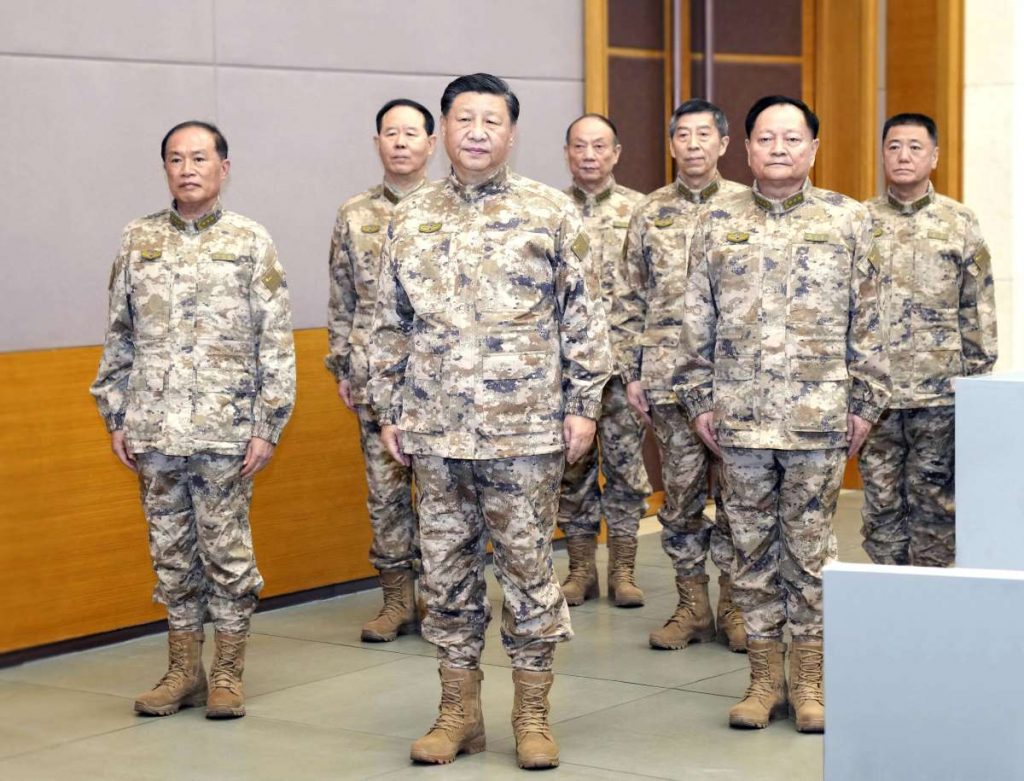
Last June, the Chinese Communist Party’s Disciplinary Authority said that 39 officials, including a number of military personnel, had been under investigation since last October.
The committee stressed that it remains determined to eradicate the cancer of corruption, emphasizing a zero-tolerance policy for corruption.
In the past months, the Chinese military has launched investigations into procurement systems and issued strict guidelines on social interaction for military leaders.
These steps appeared to be aimed at stemming the leak of classified information, as well as other breaches of disciplinary rules, according to state media.
Corruption in the Chinese Liberation Army has been a long-standing problem, according to The Washington Post, which noted that the current crackdown on corruption is the third since Xi took power.
Despite having asserted his control over the military during his time in power, Xi remains concerned about corruption in the ranks, according to Lyle Morris.
“Many of these officers were involved in procuring weapons systems for the rocket force, they worked in the bureaucracy, they may have tried to influence bidding or taken bribes,” said Li Nan, a senior research fellow at the National University of Singapore’s East Asian Institute.
“The persistence of corruption at the top levels of the military suggests Xi still lacks sufficient personal ties and control to prevent abuses of military power,” Li said.
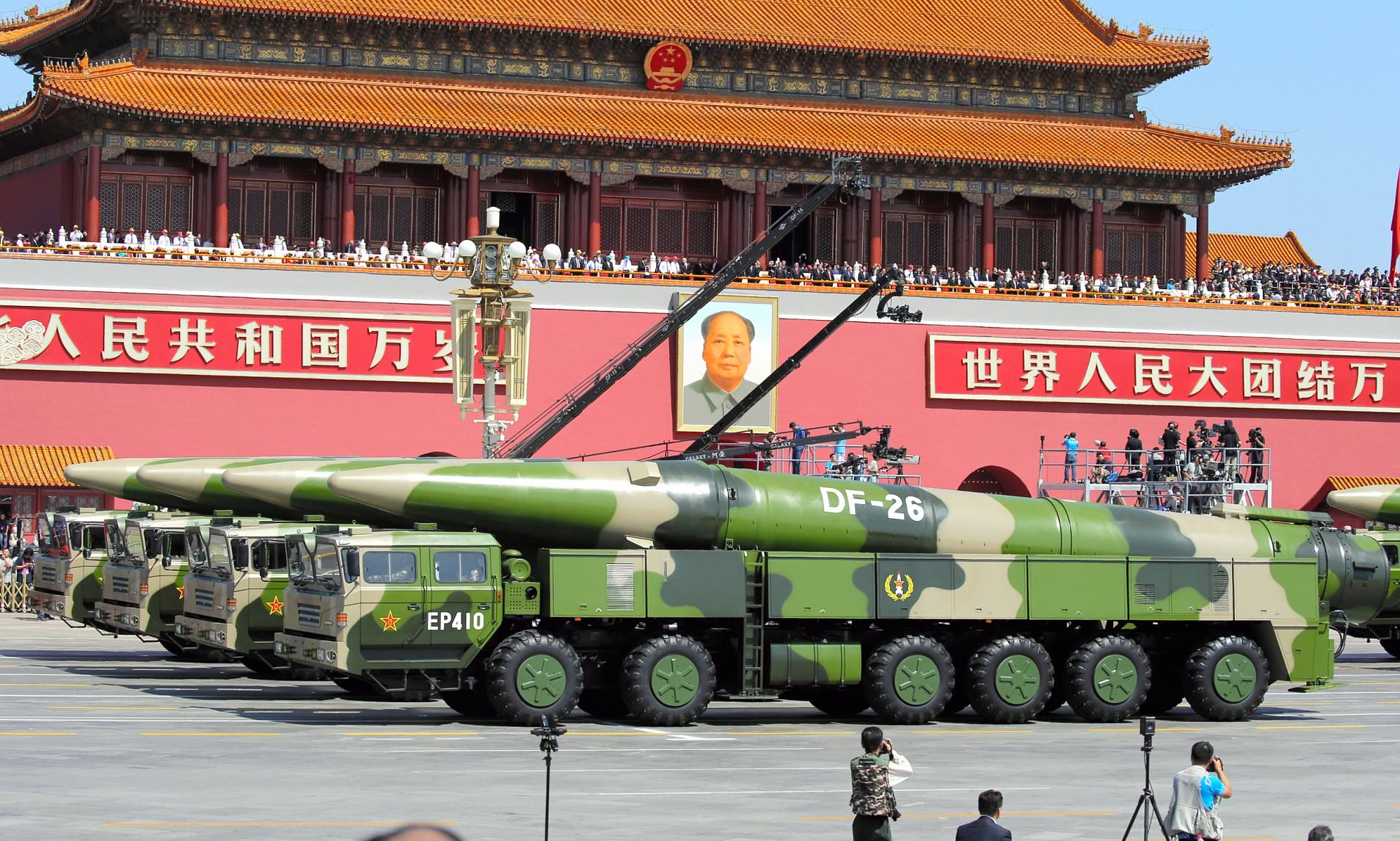
Mysterious Motives
It is noteworthy that the absence of detailed information about such political and military changes in China is common and is an example of the lack of transparency in the politics of the Chinese elite.
The overthrow of the Rocket Force’s leaders, who had been out of sight for months, comes less than a week after the dismissal of Foreign Minister Qin Gang, who also disappeared from view on June 25.
On July 24, in an unprecedented incident, Qin Gang, the Chinese foreign minister, was dismissed suddenly and without an official explanation from the Chinese government.
Although he is a rising star in the Chinese Communist Party and was at the center of an important diplomatic process between Washington and Beijing a few weeks ago, this decision raised speculation about the motives behind that dismissal.
At the time, Beijing refused to provide any explanation for the exemption of Chen, who was considered close to Xi, which led to speculation that he was under investigation, which is the famous accusation that any Chinese official opposed to President Xi’s policy disappears.
The absence of PLA Strategic Support Force commander Ju Qiansheng during the 96th-anniversary celebration of the founding of the PLA on July 31 has sparked suspicions from the media that the clean-up of the PLA is not limited to the Rocket Force, and Ju might also be in trouble.
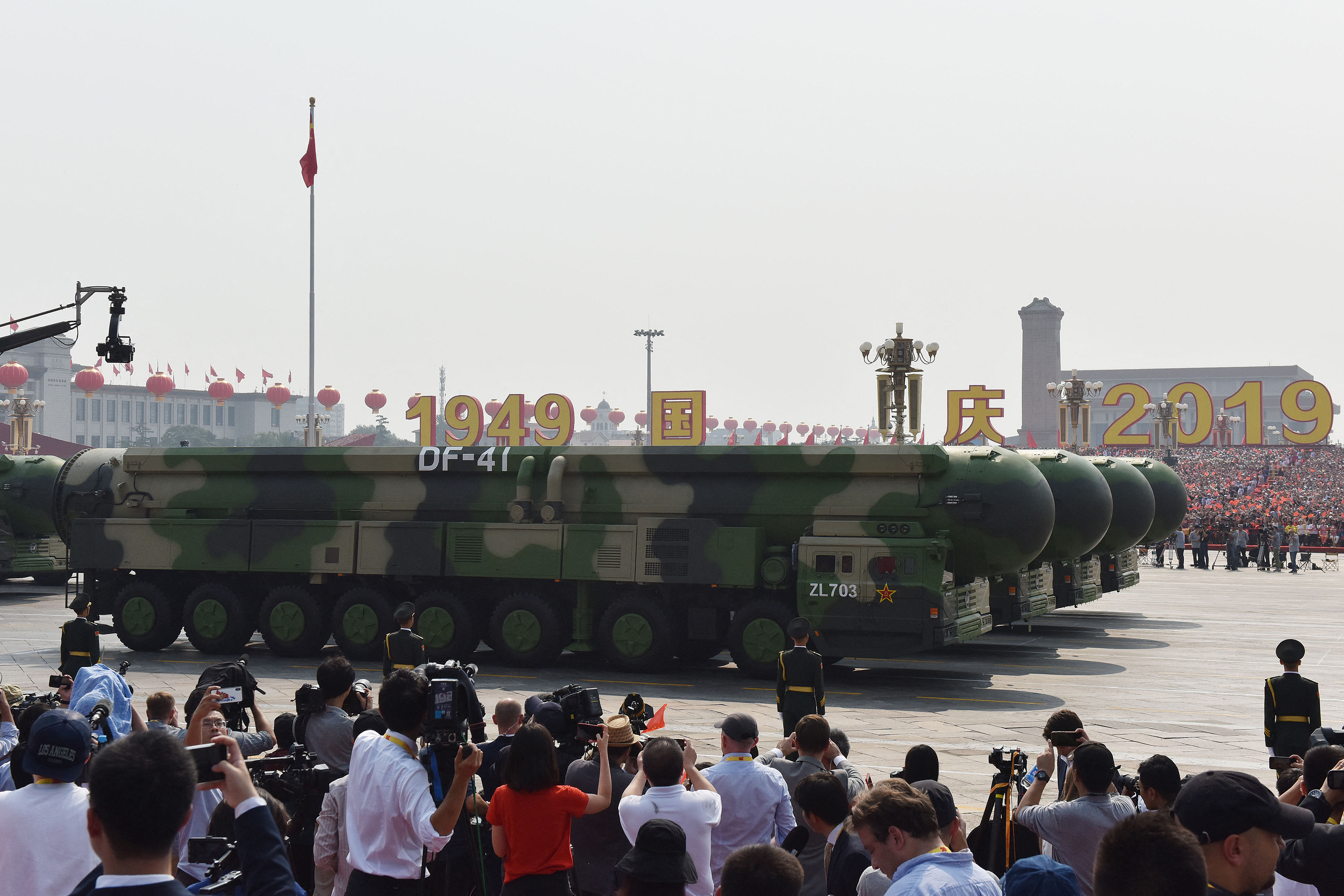
In turn, military analyst Colonel Omar Melhem indicated in a statement to Al-Estiklal that since Xi Jinping was re-elected to the presidency of China last March, he has come to dominate the leadership of the Chinese Communist Party as no one else has controlled it since the time of Mao Zedong.
He added that these recent changes by Xi may reflect divisions within the Chinese army or political struggles within the country, pointing out that the reasons behind these appointments go beyond the military aspects, and may be related to a political agenda, amendments to the army’s command structure, or to settling internal scores.
Colonel Melhem explained that “the expected ramifications of removing veteran generals from the force responsible for China’s nuclear and missile arsenal are multiple and complex, including undermining the confidence of soldiers and officers in their new leadership, which may affect coordination and military harmony within the force.”
Sources
- China’s military shake-up may hint at corruption or Xi Jinping’s weakness
- Absolute loyalty: Xi Jinping turns anti-corruption focus to China’s military
- China Replaces Missile Commander Days After Removing Foreign Minister
- China Unveils New Head of Rocket Force Amid Reported Probes
- Xi presents order to promote military officers to rank of general
- China names General Wang Houbin as new PLA Rocket Force chief after former commanders snared in corruption scandal
- China's never-ending battle against corruption


